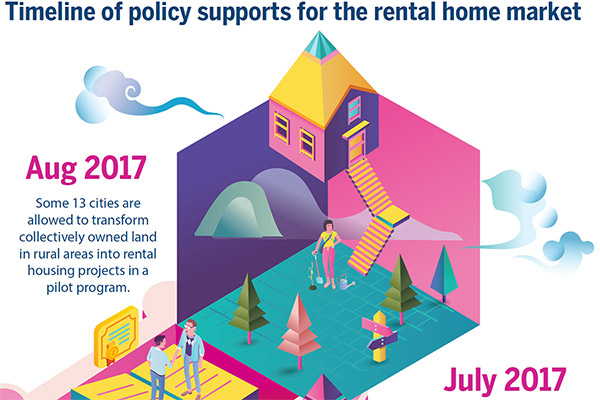Growth in home prices cooling in major cities
Results show measures to curb speculation are having an effect
The growth of home prices in 15 key cities, including first-tier cities and provincial capitals, cooled in August as city-specific measures curbing speculation continue to have an effect, National Bureau of Statistics officials said on Monday.
Liu Jianwei, a senior statistician at the bureau, said the growth in new home prices in August was the lowest in seven months on a year-on-year basis. On a month-on-month basis, prices fell or leveled off in even more cities.
This is sign of stable and steady development of the real estate market, according to the bureau.
The growth in new home prices in 48 cities in August dropped from 1.3 percent to 6.6 percent from July.
In Beijing and Shanghai, the average new home price in August remained at the same level as in July.
Prices in Shenzhen dropped by 0.4 percent in August and in Guangzhou by 0.7 percentage points compared with July.
The NBS data did not include actual prices in the 70 cities it monitors. According to the research arm of anjuke.com, a real estate services provider, the average new home price in the 67 cities it surveys in August was 14,498 yuan ($2,208) per square meter, a 1.29 percent month-on-month increase, the lowest this year.
The latest figures point to a relatively stable market in August with growth rates moderating downward in most cases, said James Macdonald, director of China Research at Savills.
While the momentum of the past two years has been able to carry the market forward despite a number of new restrictions and tighter monetary policy, growth rates are likely to slow in the coming months as the year draws to a close, Macdonald said.
"Growth rates, however, remain positive, so the government is unlikely to relax restrictions in any meaningful way, especially given the continued struggle to rein in debt levels. A sustained slowdown in the real estate market is likely to continue for the foreseeable future," he added.
Developers are also trying to diversify their business models by allocating more resources to property management, as opposed to development and sales.
"In the capital market, early adopters of the idea that both for-rental and for-sale should be developed are already building up expertise in residential rental project management. The merger and acquisition market will also see more cases of transactions involving not only land parcels and assets, but also property management and maintenance teams," said Zhai Liming, partner and deals real estate leader at PricewaterhouseCoopers.
"Also, developers, particularly the big ones, are focusing on scaling up. The market is going to be more polarized and more consolidated in the near future," Zhai said.



















